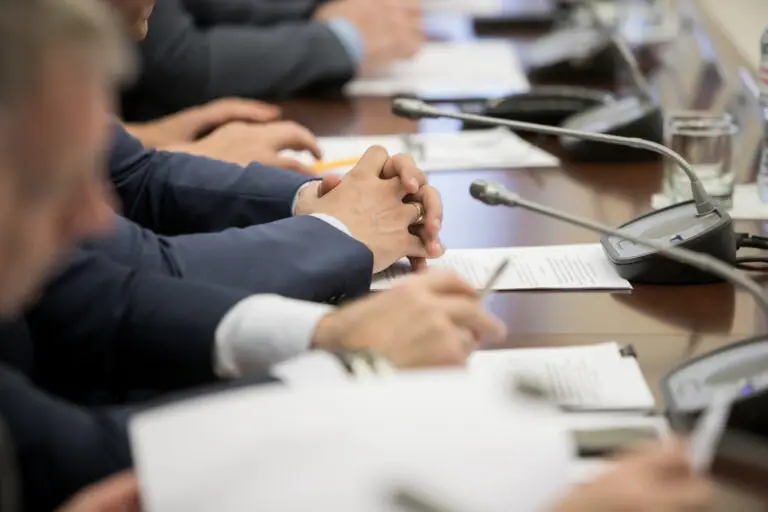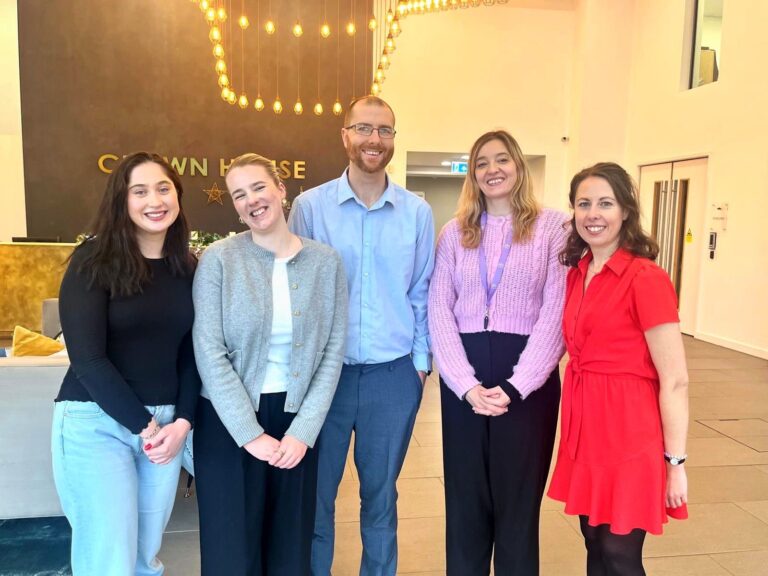This year at Conservative Party Conference, green politics and commitments to Net Zero were under attack. From Energy Secretary Claire Coutinho falsely accusing Labour of planning to introducing a meat tax to Sunak’s cancellation of phase 2 of HS2, the prominent presence of climate change sceptics including David Frost, Nigel Farage and Jacob Rees-Mogg, and the absence of any significant policy commitments to addressing ongoing issues in the energy sector, Manchester was an unwelcome place for those for whom “Net Zero has become a religion”.
In his keynote address to conference, Sunak attempted to apportion last month’s rollback on climate measures to the cost-of-living crisis, whilst maintaining that Conservative policies will still deliver net zero by 2050. It formed part of a speech that ran to more than 7,500 words – lasting more than an hour – where he looked to portray himself as the candidate for change, making ‘”long-term decisions for a brighter future” in an attempt to reduce Labour’s lead in the polls ahead of next year’s General Election.
Meanwhile on Monday, Coutinho gave her address to the party faithful. Reiterating much of the Prime Minister’s messages from his net zero announcements the previous week, she insisted that the UK is doing more than any other country in the world and that working people shouldn’t be overburdened with the cost of getting to net zero, stressing that it would be “immoral” put forward policies that she claimed would “impoverish people”.
However, in amongst the rhetoric, Coutinho did commit to three new policy pledges:
- Setting out our nuclear road map this autumn, which will include the deployment of small modular nuclear reactors;
- Reducing pressure on rural communities by making it easier for solar panels to be installed on industrial rooftops, warehouses, car parks and factories by through the planning red tape that limits the amount of solar businesses can currently install;
- Allocating a further £80 million to insulate thousands of social homes.
Across the fringe, those brave enough to face the party faithful included former Cop26 president Alok Sharma, who alongside Manchester Mayor Andy Burnham, made the case for Net Zero at this year’s Green Summit and outgoing MP Chris Skidmore, who told urged the Government to demonstrate leadership on green policies. Sam Hall, the director of the Conservative Environment Network (CEN), also featured prominently, emphasising the economic benefits of maximising opportunities in the energy sector.
Beyond the headlines and the main hall though, serious discussions around the challenges facing the UK’s net zero ambitions did take place. At Bright Blue’s event on ‘The UK’s energy market on the road to Net Zero’, Minister for Nuclear and Networks, Andrew Bowie, confirmed that the Energy Bill would receive Royal Assent before the King’s Speech and suggested that “some incredibly important announcements” would be released in the coming weeks and months.
Bowie rebuffed criticism from other panellists that the Government was not doing enough to accelerate progress towards its net zero targets, bullishly insisting that the Department had delivered “transformative” policy across the sector. Noting that the Government’s response to the Winser Review was “imminent”, Bowie assured panellists and the audience that other issues, not least the ongoing delays to grid connection, were an “immediate focus” for both the Prime Minister and the Chancellor. He also said that Graham Stuart was “looking seriously” at the lessons from the recent AR5 results.
Elsewhere, the Institute for Government (IfG)’s panel discussion: ‘How should a future energy system be governed’, explored the opportunities and challenges presented by the Future System Operator (FSO). National Grid Electricity System Operator (ESO), Colm Murphy, warned that there are “no silver bullets” and that the FSO (expected to be operational next summer), whilst being a “critical friend”, would not “solve everything”, noting that its top-down view needs to align with regional and local processes, including by meeting the needs of local communities. Former civil servant and Flint Global partner, Josh Buckland, said that the FSO should be modelled to a ‘Bank of England style’, capable of making decisions across a number of areas, whilst maintaining a more advisory role in others, ensuring that the Government still retain some responsibility.
Finally, at Onward’s ‘Securing Great Britain’s Energy System’ event, Bowie praised the “incredible work” of the ESO to meet issues around grid infrastructure and decarbonisation, though others implored the Government to act more quickly to develop the infrastructure required to meet Net Zero targets. Buckland said he welcomed Rishi Sunak’s “honesty” about the scale of the challenge ahead, though insisted that issues around public opinion needed to be addressed. To that end, Conservative MP Selaine Saxby said that community engagement, including around issues of locational pricing, would be critical in the months and years ahead.







